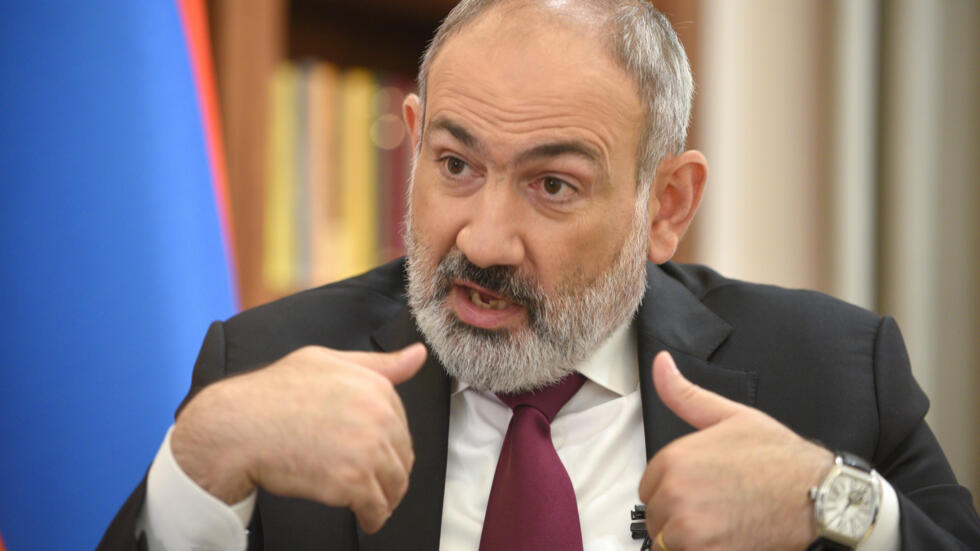
Armenia could face war by ‘end of the week’ if it does not return four Azerbaijani villages, PM Pashinyan says.
Armenia’s Prime Minister Nikol Pashinyan has said his country could face a war with neighbouring Azerbaijan if it does not compromise and return four Azerbaijani villages it has held since the early 1990s.
In the video published on Tuesday, Pashinyan was speaking at a meeting with residents in northern Armenia’s Tavush region, close to a string of deserted Azerbaijani villages that Armenia has controlled since the early 1990s.
The four villages, which have been uninhabited for more than 30 years, are of strategic value to Armenia as they straddle the main road between Yerevan and the Georgian border.
Azerbaijan has said the return of its lands, which also include several tiny enclaves entirely surrounded by Armenian territory, is a necessary condition for a peace deal to end three decades of conflict over the region of Nagorno-Karabakh, which Azerbaijan’s forces retook last September.
Pashinyan told locals on Monday, in the video clip that was circulated by his government, that failure to compromise over the villages could lead to war with Azerbaijan “by the end of the week”, Russian state news agency TASS reported.
“Now we can leave here, let’s go and tell [Azerbaijan] that no, we are not going to do anything. This means that at the end of the week a war will begin,” TASS quoted him as saying.
Armenia suffered a major defeat in September when Azerbaijan’s forces retook Nagorno-Karabakh in a lightning offensive, prompting almost all of that region’s estimated 100,000 ethnic Armenians to flee to Armenia.
Though Nagorno-Karabakh is recognised internationally as Azerbaijani territory, the region’s ethnic Armenians have enjoyed de facto independence from Azerbaijan since the war of the early 1990s.
Peace treaty
Azerbaijan and Armenia have said they now want to sign a formal peace treaty, but talks have become bogged down in issues including the demarcation of their 1,000km (620 mile) shared border, which remains closed and heavily militarised.
Pashinyan has signalled in recent weeks that he is willing to return Azerbaijani land controlled by Armenia, and suggested rerouting Armenia’s road network to avoid Azerbaijani territory.
Muslim-majority Azerbaijan also continues to control areas internationally recognised as part of Christian-majority Armenia.
Azerbaijan’s President Ilham Aliyev said on Sunday his country was “closer than ever” to peace with Armenia, in remarks made after holding talks with NATO Secretary-General Jens Stoltenberg in Baku.
Stoltenberg held talks on Tuesday with Pashinyan in Armenia, which is nominally a Russian ally though its relations with Moscow have deteriorated in recent months over what Armenia says is Russia’s failure to protect it from Azerbaijan.
As a result, Armenia has pivoted its foreign policy towards the West, to Russia’s chagrin, with senior officials suggesting it might one day apply for European Union membership.
Speaking at a news conference in Yerevan with Pashinyan, Stoltenberg welcomed what he called Armenia’s solidarity with Ukraine.
Commenting on Stoltenberg’s visit, the Kremlin said the bloc’s efforts to expand there were unlikely to help bring stability.
In a statement posted on Tuesday on the Telegram messaging app, Russian Foreign Ministry spokeswoman Maria Zakharova suggested Armenia’s deepening ties with the West were the reason for it having to make concessions to Azerbaijan.

